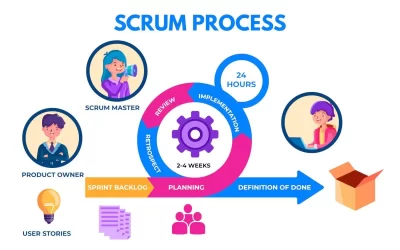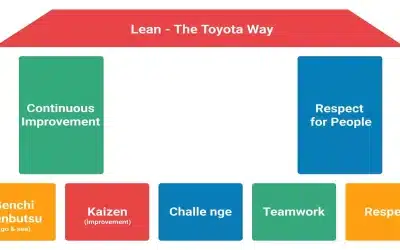In project management as in any other field, the creation of documents is essential. This is because these documents keep a written record of what you need to do or have already done on the project.
The responsibilities of each person, the tasks to be carried out, the guidelines to be followed, the objectives to be achieved, the budget to be respected, etc., all this valuable information is recorded in specific documents. Documented in this way, this data facilitates project management by allowing precise monitoring and avoiding errors, doubts and misunderstandings.
Find out which information is essential to document and the 7 project documents that are essential for the success of your projects.
What should be documented?
It is important for the project manager and his/her team to keep a written record of all aspects of the project they are working on. This documentation process should take place throughout the life cycle of the project. Although this work may seem tedious and time-consuming, it is essential to the success of your projects because it will help you to be more efficient and save time, especially when you are looking for specific information.
Here are the elements that you must document when managing your projects.
Everything related to the client: requests, requests for changes, decisions made, minutes of meetings, etc. Documenting all your client’s discussions and requests helps you to clear up doubts or resolve a dispute about a decision. Remember to include the date, time and people involved each time to avoid misunderstandings.
Legal information: some projects require specific information that needs to be checked by your company’s or client’s legal department. Find out beforehand so that you can gather this information at the start of the project and ensure that it is available when the legal teams request it.
Basic project information: this sets out the purpose of the project and how it will be carried out. This includes the objective(s) of the project, the schedule, the various milestones, the budget, the deadlines to be met, the guidelines to be followed, etc. In case of doubt, the project team members can consult this information at any time. It is also essential for briefing a new person who joins the project team during the project.
All the changes made to the project: a project rarely remains as it was originally defined. It is often subject to changes for various reasons (budget restrictions, various demands from the client, reduction or increase in resources, adaptation to the market, etc.). It is therefore important to document all the changes made and the reasons for these changes.
The 7 essential project documents
Here are 7 essential project documents that the project manager and his/her team should write.
1. The opportunity study
Also known as the opportunity note or business case, this document is a kind of feasibility study carried out before the project starts in order to ensure its viability, and to convince the client or company to carry out the project.
The opportunity study serves to validate the project’s rationale, context, relevance and expected benefits, taking into account the means and costs involved. It allows the project to be authorised or not, and is used at the end of the project to assess whether the objectives have been achieved.
2. The project charter
This is a formal, fairly succinct document which sets out the main features of the project in detail. The project charter describes the main aspects of the project such as objectives, scope, expected results and stakeholders. It is used throughout the life of the project, particularly to monitor changes to the original project.
3. The project plan
The project plan is more elaborate than the project charter. It is the roadmap which determines how the project is to be managed by the project manager. It is written on the basis of the specifications, which define the needs and requirements of the client.
It contains the following information
- objectives to be achieved
- various milestones
- results expected at each stage
- resources required;
- participants and their roles and responsibilities
- budget allocated;
- deadlines to be met;
- project timetable;
- tasks to be carried out.
The purpose of the project plan is to help the project manager and his or her team stay on track.
4. The project communication plan
Communication is essential for the success of a project, both external communication with the client or other stakeholders, and internal communication within the project team. Good communication avoids misunderstandings, misunderstandings and unspoken words that can damage relationships and the success of the project.
The project communication plan is essential to ensure effective and transparent communication between all project stakeholders throughout the project. It defines what you want to communicate, to whom, when and how.
5. The risk management plan
In project management, there is no such thing as zero risk. You must therefore produce a document which identifies the potential risks that the project may face and assesses their impact and the likelihood of them occurring.
The risk management plan sets out how the project team anticipates these risks and what actions are planned to eliminate, reduce or correct their negative effects on the project.
6. The project schedule
This is an essential project document for effective time management. The project schedule lists all the tasks to be carried out, their duration and the resources allocated, the various milestones and the project deliverables. It also indicates the start date of the project and the expected end date.
7. The project closure report
The closure of a project must be carefully documented so that nothing is forgotten. This is the moment of assessment. You must then draw up a final document: the project closure report.
This document is important because it allows you to, among other things
- confirm the delivery of the deliverables to the client
- close the accounts and contracts relating to the project
- evaluate the success or failure of the project;
- manage knowledge sharing and transfer
- archiving project documentation;
- measuring stakeholder satisfaction.
In addition, writing this final project document is an opportunity to learn from what you and your team have learned during the project.









